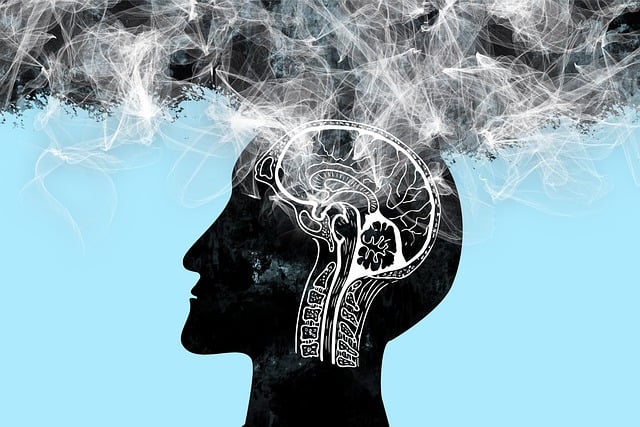In Oregon, especially within Marion County, civil commitment proceedings governed by state Mental Health Law ensure safety for individuals with severe mental illness who pose a risk to themselves or others. The process begins with an application to court, followed by an evaluation and hearing balancing rights against public safety. Understanding this process and seeking legal representation from advocates specializing in Oregon's Mental Health Law is crucial for defending against civil commitment allegations. Marion County advocacy groups offer critical legal representation, guiding clients through the intricate aspects of the Oregon commitment process while ensuring they understand their rights, ultimately protecting personal freedom and future care arrangements.
In Oregon, civil commitment allegations can have profound impacts on an individual’s life. This article guides you through the intricate world of civil commitment proceedings, focusing on Oregon’s unique legal landscape and your rights within it. We explore key aspects such as understanding the commitment process, the role of legal representation, and the support available from Marion County advocacy groups. By navigating these complexities, individuals facing such allegations can protect their freedoms and advocate for their mental health.
- Understanding Civil Commitment Proceedings in Oregon
- Navigating Mental Health Law and Your Rights
- Marion County Advocacy: Local Support for Your Case
- Deciphering the Oregon Commitment Process
- The Role of Legal Representation in Mental Health Cases
Understanding Civil Commitment Proceedings in Oregon

In Oregon, civil commitment proceedings are a legal process aimed at ensuring the safety of individuals who may pose a danger to themselves or others due to severe mental illness. These proceedings, governed by Oregon’s Mental Health Law, involve a comprehensive evaluation of an individual’s condition and their potential risk to society. The process starts with an application to a court, typically in Marion County, which triggers an investigation and a hearing where the individual’s rights and freedoms are balanced against public safety concerns.
Understanding the Oregon commitment process is crucial for anyone facing these allegations. Legal representation from experienced advocates specializing in mental health law can significantly impact the outcome. These advocates ensure that the accused’s rights are protected, providing a robust defense strategy. They navigate the complex legal landscape, offering guidance and support throughout the proceedings, ultimately helping to determine the best course of action for the individual’s future care and treatment.
Navigating Mental Health Law and Your Rights

Navigating Mental Health Law and Your Rights is a crucial step in defending against civil commitment allegations in Oregon. Understanding your rights within the Oregon commitment process is essential, especially when facing potential involuntary placement. In Marion County and beyond, individuals accused of mental health-related offenses often find themselves at a crossroads, needing dedicated advocacy to ensure fair treatment under mental health law.
Seeking legal representation from experts in Oregon commitment process is a proactive measure. Skilled attorneys can guide clients through the complexities of civil commitment proceedings, protecting their rights every step of the way. In these sensitive cases, having strong legal counsel ensures that your voice is heard and that your best interests are defended, upholding your autonomy and dignity throughout the entire process.
Marion County Advocacy: Local Support for Your Case

Marion County offers significant support for individuals navigating complex mental health law and civil commitment proceedings. Local advocacy groups play a crucial role in assisting those facing potential Oregon commitment process, ensuring they understand their rights in mental health cases. These organizations provide invaluable legal representation, guiding clients through the intricate aspects of the commitment process.
With dedicated professionals and a deep understanding of local laws, Marion County advocacy offers a strong defense against civil commitment allegations. They empower individuals to assert their rights, challenge inappropriate commitments, and make informed decisions regarding their mental health care. This support is vital in protecting citizens’ liberties while ensuring access to appropriate treatment under Oregon’s mental health framework.
Deciphering the Oregon Commitment Process

Understanding the Oregon Commitment Process is a crucial first step for anyone facing civil commitment allegations. In Oregon, civil commitment proceedings are governed by state laws and regulations that outline the criteria for commitment, procedures for evaluation, and rights of individuals involved. These proceedings can be complex, often involving intricate mental health law aspects. The process typically starts with an assessment by qualified professionals who determine if an individual meets the legal standards for commitment, focusing on factors like risk to self or others and the inability to care for oneself.
In Marion County, advocates play a significant role in navigating the Oregon commitment process. They ensure that individuals accused of civil commitment have adequate legal representation, protecting their rights throughout the case. This includes assisting with procedural steps, explaining complex legal terms, and advocating for alternatives to commitment if possible. Knowledgeable advocacy can make a substantial difference in the outcome of these cases, where the balance between personal freedom and public safety is carefully considered.
The Role of Legal Representation in Mental Health Cases

In Oregon, particularly within Marion County, accessing competent legal representation is paramount when navigating civil commitment proceedings. Mental health law is a complex field, and the Oregon commitment process demands a deep understanding of individual rights in mental health cases. A seasoned advocate specialized in this area can play a pivotal role in safeguarding an individual’s liberties during these challenging times. They ensure that clients’ rights are protected, providing crucial guidance throughout each stage of the legal process.
Legal representation offers several strategic advantages. It enables advocates to challenge the validity of commitment petitions, scrutinize evidence, and cross-examine witnesses effectively. Furthermore, they can help individuals navigate the complex framework of Oregon’s mental health laws, ensuring their treatment is in line with legal standards. This support is essential, especially as civil commitment allegations carry significant implications for personal freedom and future care arrangements.
